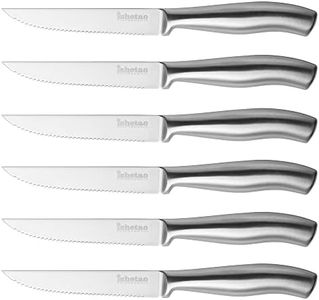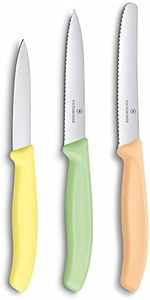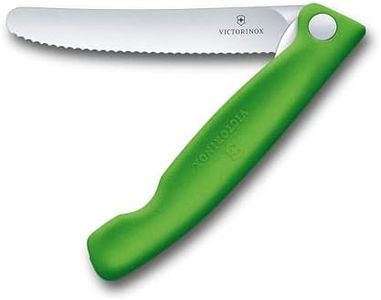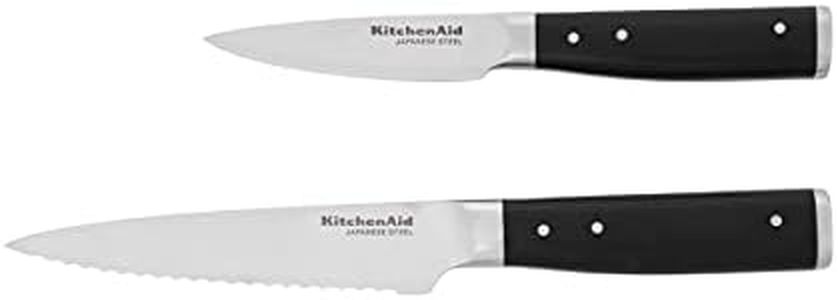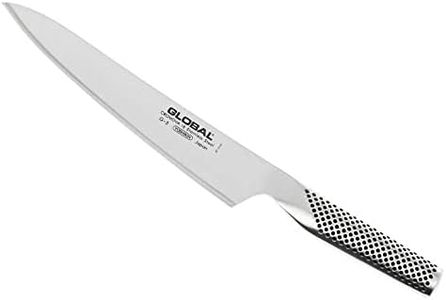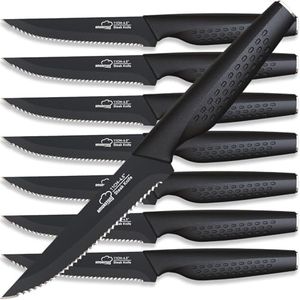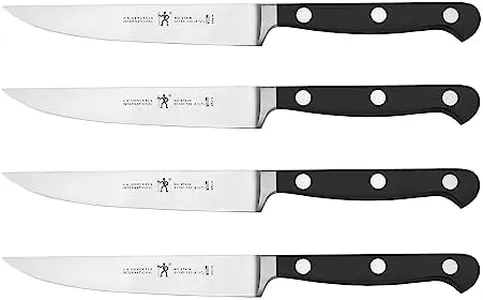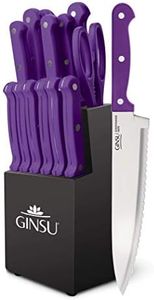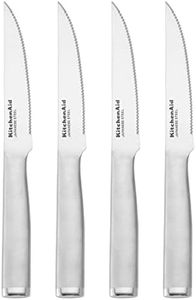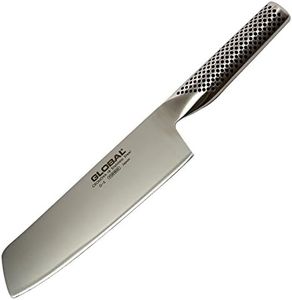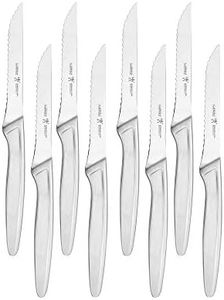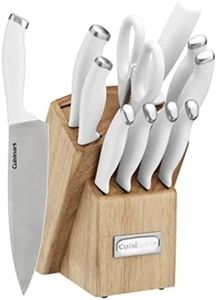We Use CookiesWe use cookies to enhance the security, performance,
functionality and for analytical and promotional activities. By continuing to browse this site you
are agreeing to our privacy policy
10 Best Dishwasher Safe Knives
From leading brands and best sellers available on the web.By clicking on a link to a third party's website, log data is shared with that third party.
Buying Guide for the Best Dishwasher Safe Knives
Choosing dishwasher-safe knives is a smart move for anyone looking for kitchen tools that are both effective and easy to maintain. While many knives need to be hand-washed to prevent damage, dishwasher-safe knives offer the convenience of machine cleaning without sacrificing performance. To select the right knives for your needs, it's important to understand key features and their impact on usability, care, and longevity.Blade MaterialBlade material determines the knife’s durability, sharpness, and resistance to corrosion—very important when knives are frequently washed in a dishwasher. Stainless steel is the most common choice for dishwasher-safe knives because it resists rust and discoloration, even when exposed to moisture and detergent. High-carbon stainless steel offers even better edge retention but may require extra care. If your priority is minimal maintenance and lasting performance after repeated dishwasher cycles, look for blades clearly labeled as rust-resistant stainless steel.
Handle ConstructionThe handle impacts both comfort in use and how well the knife holds up in a dishwasher. Full-tang handles (where the metal runs through the handle) typically add strength. Dishwasher-safe knives often have handles made from durable plastics or composite materials, which prevent water absorption and splitting. Wood handles, while attractive, generally don’t fare well in dishwashers and can crack or warp over time. If easy cleaning and a long-lasting handle are important, choose knives with molded or riveted synthetic handles.
Joint SealingWhere the blade meets the handle can be vulnerable to moisture if not properly sealed. A well-sealed joint prevents water from penetrating and causing damage or harboring bacteria. Dishwasher-safe knives usually have seamless or highly sealed joints to avoid such issues. When picking a knife, check for smooth transitions and avoid models with visible gaps or unsealed parts, especially if you plan to put them in the dishwasher regularly.
Blade HardnessBlade hardness, often measured on the Rockwell scale, affects how well the knife retains its edge and how resistant it is to chips or dents. Softer steel is less likely to chip in a dishwasher, while harder steel may stay sharper longer but can be more brittle under the stress of frequent washing. If you don’t want to sharpen often and need a knife to survive repeated washes, opt for moderate hardness rather than the hardest available blades.
Care and Manufacturer InstructionsEven among knives described as dishwasher-safe, manufacturers may have specific care instructions to maximize the knife’s life. Some recommend placing knives on the top rack or avoiding citrus-based detergents. Always read the care guide that comes with the knife and make sure your anticipated cleaning habits align with the recommendations to ensure your knives stay in good condition.
